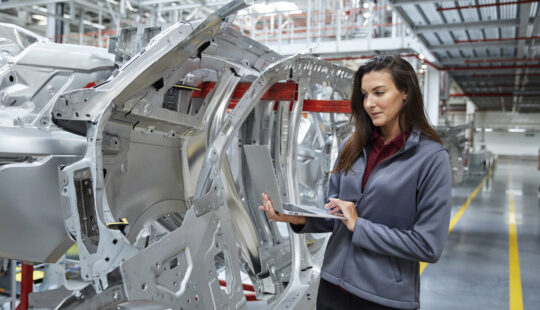In July 2019, SAP launched the “Beyond Single-Use Plastics” project with the goal of completely eliminating single-use plastics from SAP-run spaces, events, and customer- and employee-facing items. In June 2021, the project concluded.
The three focus areas — Global Real Estate & Facilities (GRF), Marketing & Events, and Global Procurement — are now ready to report on their results.
Global Real Estate & Facilities Achieved 99%
Overall, the GRF unit has achieved 99% of its goal to identify, eliminate, and replace single-use plastics with more sustainable alternatives. More than 126 tons of plastic and a remarkable 758.58 tons of carbon dioxide were saved in a total of 203 buildings (only offices above 1,000 m² were considered) as a direct result of the project. Though the pandemic hit, SAP reduced its plastic consumption by 36% in 2020 compared to the previous year.
All SAP canteens and cafeterias are free of single-use plastic cups, cutlery, straws, and stirrers. Single-use plastic water bottles were also replaced with glass bottles. Other plastic items such as garbage bags, individually wrapped snacks, juice, milk cartons, and tea bags were reduced significantly in all regions. Items related to health, security, and safety purposes — from sterile medical packaging to safe food storage — were out of scope.
Due to COVID-19 restrictions, certain items like condiments that had already been eliminated before had to be reintroduced to provide a safe work environment.
Nevertheless, Lisa Kuerten, catering coordinator at SAP, is very optimistic: “Despite the difficulties we faced due to COVID-19, we’re excited to see that the changes we introduced have been well received by our colleagues. We’ve gotten a lot of positive feedback on VYTAL, for example, a digital reusable food packaging system that has already saved more than 28,000 single-use packages.”
Events to Remain Plastic-Free
After the success of making company kick-off meetings completely free of single-use plastics in January 2020, all events went digital due to the COVID-19 pandemic. Future physical events will be built on the pre-pandemic successes.
“We are working to build a world-class sustainable event management program that improves the social, environmental, and economic impact of SAP,” shares Jenny Bittmann, senior specialist for Event Marketing at SAP.
Global Procurement Claims High Standards for Suppliers and the Delivery of IT Equipment
SAP works closely with its suppliers to reduce the impact of the products and services it buys.
“Procurement has a big lever to influence our environment and a green supply chain,” said Stefan Ulrich, vice president and head of Workplace Infrastructure and Global Procurement organization at SAP.
Even though SAP has no direct control over the packaging strategies of manufacturers, the company works closely with its suppliers and requests the avoidance of single-use plastics, for instance via its SAP Supplier Code of Conduct.
Regarding IT equipment, ambitious plans are in place for the future: SAP employees’ 100 most popular products will be offered without the use of single-use plastics. A Qualtrics survey triggered after each purchase order will track unintended violations of the policy. Additionally, new IT equipment will be offered in smart vending machines at SAP locations by 2022 and biodegradable phone cases are planned to be available soon.
A Sustainable Future
Single-use plastic is one of the greatest contributors to waste on the planet. To minimize its everyday use, SAP has dramatically changed its buying habits and practices over the last two years. A global pandemic, manufacturers’ packaging that was beyond SAP’s control, and varying recycling regulations from local governments were just some of the challenges the project faced.
Where do we stand now that the project is completed? As a global player, SAP sees a great responsibility to both lead by example and enable customers to operate more sustainably. Besides committing to achieving carbon neutrality by 2023, reducing water consumption, and creating the technologies that support the business ecosystem in delivering a clean ocean by 2030, SAP offers customers a range of innovative solutions such as SAP Responsible Design and Production.
Sibel Wambach, global lead for the Beyond Single-Use Plastics project, knows the completion of the project is just the beginning and that climate action must be driven continuously to improve processes. “Our journey is far from over. But you have to start somewhere – and with the launch of Beyond Single-Use Plastics, we did.”



